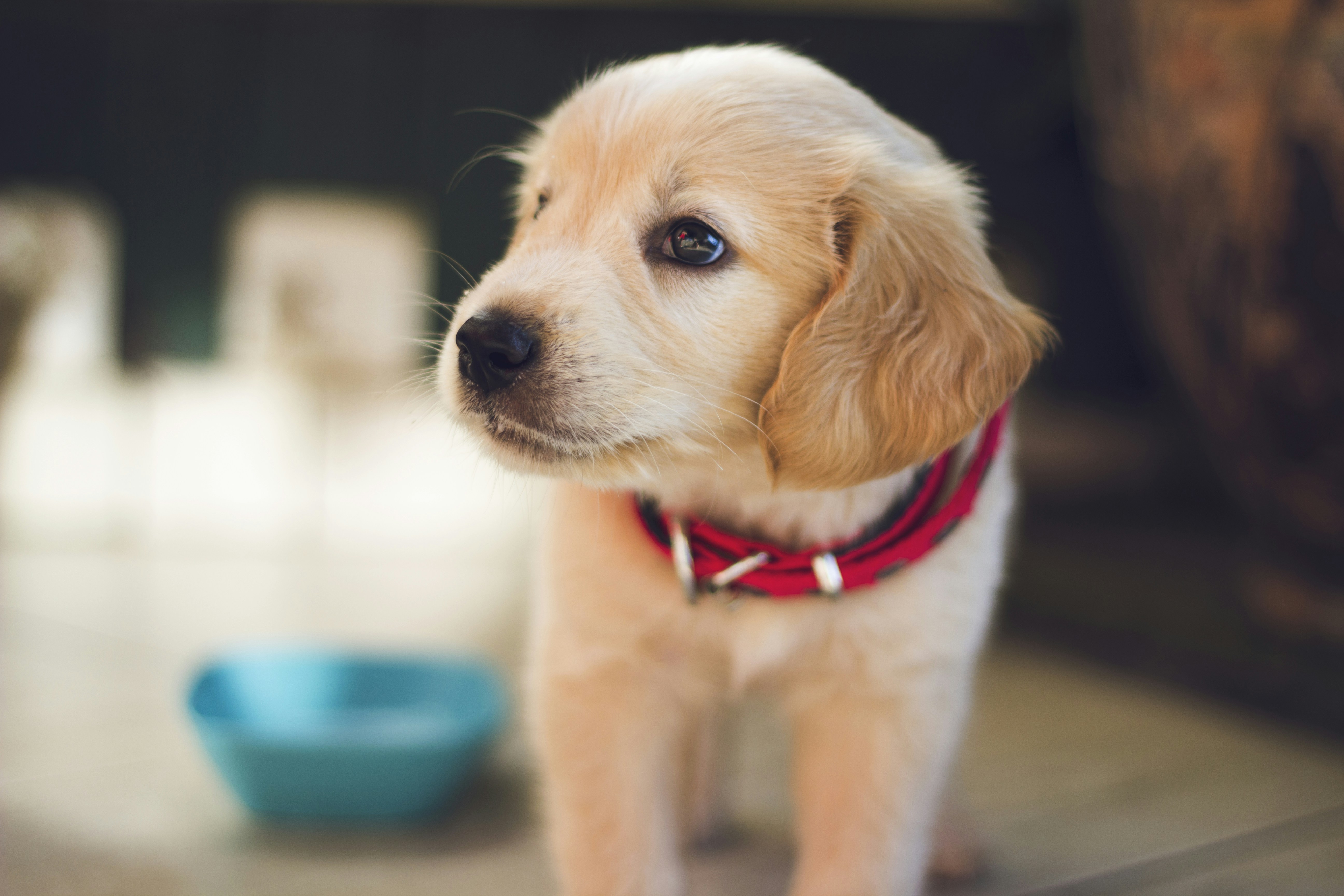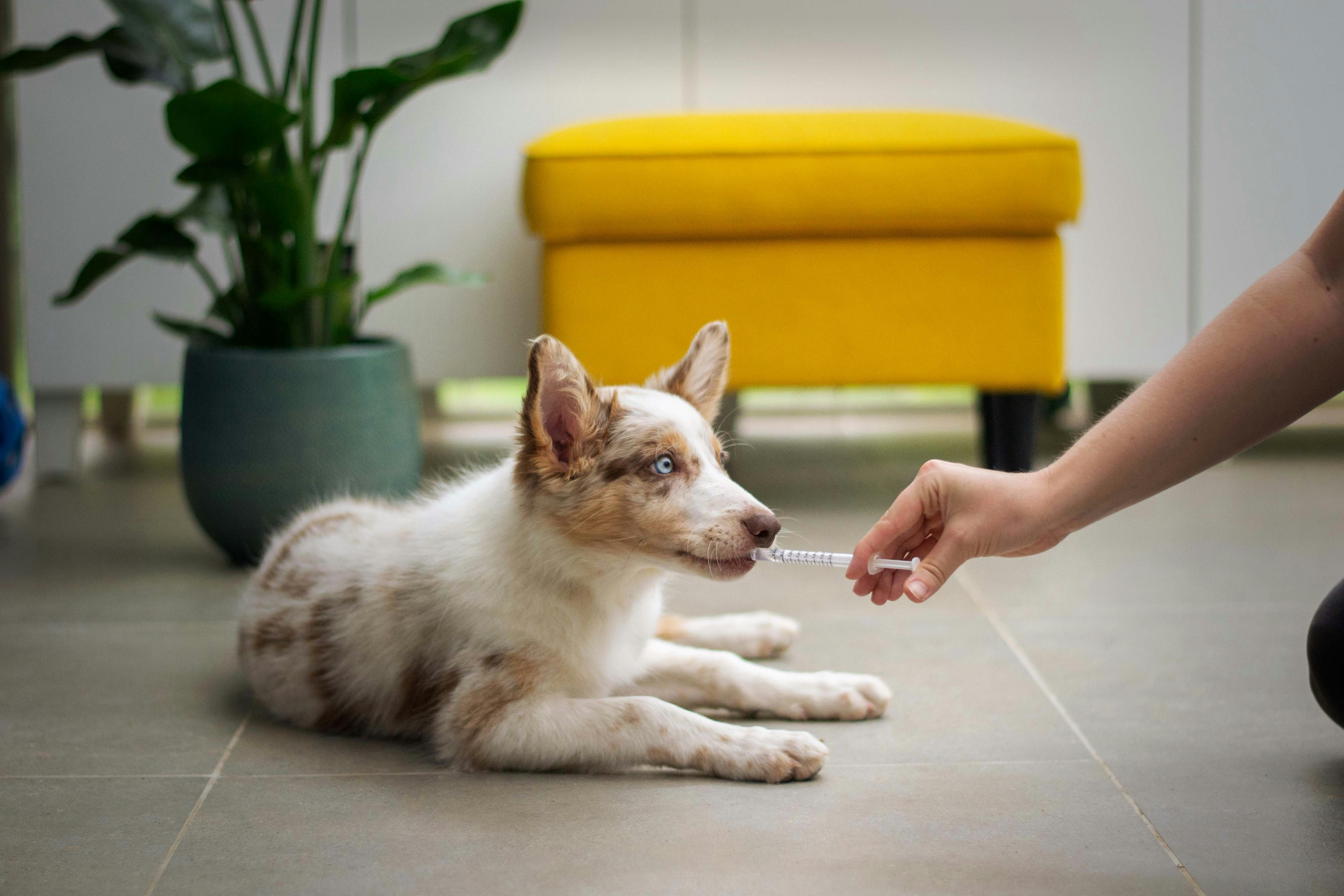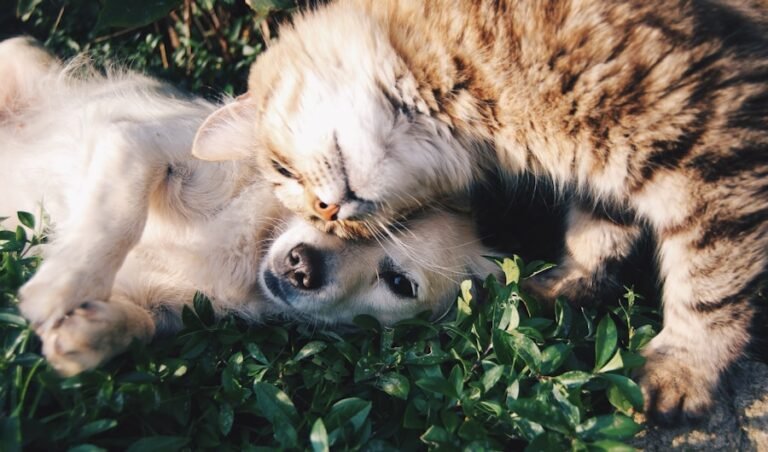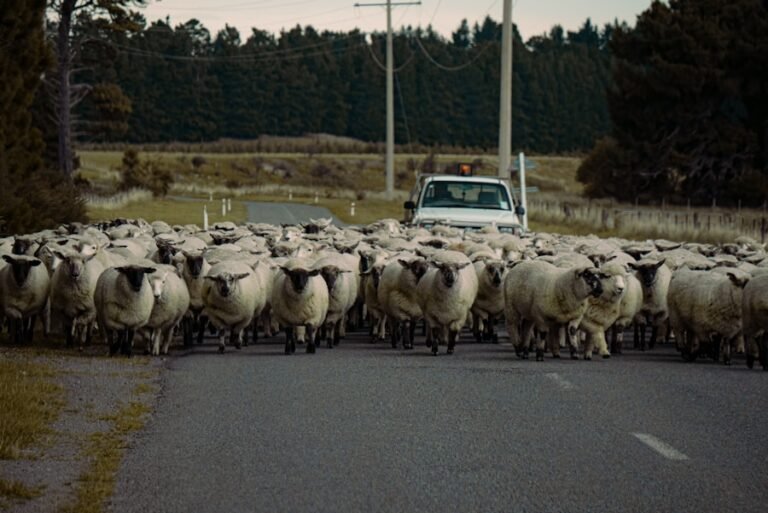The Perfect Guide to Adopting a Border Collie Puppy
So, you’ve made the decision to bring a furry bundle of joy into your life, and you can’t wait to experience the endless love and companionship that a Border Collie puppy can provide. But where do you even begin? With their intelligence, energy, and incredible work ethic, Border Collies require a special kind of owner. Luckily, this guide is here to lead you through the exciting journey of adopting a Border Collie puppy, from finding a reputable breeder or rescue organization to creating a loving and nurturing environment for your new best friend. Get ready to embark on a thrilling adventure as you enter the world of Border Collie ownership!
Preparing for adoption
Researching Border Collie characteristics
Before adopting a Border Collie puppy, it is essential to research the characteristics of this breed. Border Collies are known for their high intelligence, remarkable agility, and intense work ethic. They are a highly energetic breed that requires ample exercise and mental stimulation. It’s important to understand that Border Collies thrive in an environment where they can engage in challenging activities that channel their energy positively.
Assessing your readiness for a Border Collie
Before bringing a Border Collie into your home, it’s crucial to assess your readiness for the commitment involved. These dogs require a lot of time, attention, and exercise. They thrive in an environment where they have a purpose or job to do. If you lead a busy lifestyle or do not have the time to devote to training, exercising, and mentally stimulating a Border Collie, it may not be the right breed for you.
Determining if a Border Collie is the right breed for you
Every potential dog owner should consider whether or not a Border Collie is the right breed for them. Border Collies are highly intelligent and excel in activities such as obedience training, agility, and herding. They require an owner who is patient, consistent, and willing to provide the mental and physical challenges the breed demands. However, if you are willing to put in the effort, a Border Collie can bring immense joy and companionship to your life.
Creating a safe and suitable environment for your new puppy
Border Collie puppies are known for their curiosity and high energy levels. It is crucial to create a safe and suitable environment for them to thrive. This includes puppy-proofing your home by securing hazardous items and creating boundaries with gates or crates. Providing sufficient space for exercise both indoors and outdoors is essential for their physical and mental well-being.
Gathering necessary supplies and equipment
Before bringing a Border Collie puppy home, make sure you have all the necessary supplies and equipment. This includes a comfortable bed, food and water bowls, high-quality dog food, collar and leash, grooming supplies, and toys for mental stimulation and play. Having these items ready before adoption will ensure a smooth transition for both you and your new furry friend.
Finding a reputable breeder or rescue organization
Choosing between a breeder and a rescue organization
When adopting a Border Collie puppy, you have the option of choosing between a reputable breeder or a rescue organization. Breeders offer puppies with known lineage and predictable traits, while rescue organizations provide an opportunity to give a loving home to a dog in need. Consider your preferences and values when deciding which avenue is right for you.
Researching and evaluating breeders
If you decide to adopt from a breeder, it is crucial to research and evaluate them to ensure you are working with a reputable one. Look for breeders who prioritize the health and well-being of their dogs, conduct health tests, and provide a clean and safe environment. Request references and make sure to visit the premises to meet the breeder and observe the conditions in which the puppies are raised.
Researching and evaluating rescue organizations
When adopting from a rescue organization, it is essential to research and evaluate them to ensure they have a good reputation and prioritize the welfare of their dogs. Look for organizations that perform thorough assessments of the dogs in their care, provide necessary medical treatments, and ensure proper socialization. Reach out to other adopters or volunteers for testimonials about their experience with the organization.
Asking the right questions
Regardless of whether you choose a breeder or a rescue organization, asking the right questions is crucial. Inquire about the health history of the puppy or dog, any behavioral issues they may have, their socialization history, and the type of care they have received. Additionally, ask about the breeding practices, vaccination records, and availability of any health guarantees or contracts.
Visiting breeders or attending adoption events
If you have decided to adopt from a breeder, it is important to visit them in person before making a commitment. This allows you to see firsthand the conditions in which the puppies are raised, interact with their parents, and assess their overall health and temperament. For those considering adoption from a rescue organization, attending adoption events or visiting their facilities allows you to meet multiple dogs and find the perfect fit for your family.
Selecting the perfect Border Collie puppy
Identifying a healthy and well-socialized puppy
When selecting a Border Collie puppy, look for signs of good health and socialization. A healthy puppy will have bright eyes, a shiny coat, and a playful demeanor. They should be confident and curious, showing no signs of fear or aggression. Observe how the puppy interacts with their littermates and other dogs, as this can give you insight into their socialization skills.
Evaluating the puppy’s behavior and temperament
Each Border Collie puppy has a unique behavior and temperament. While some may be more outgoing and playful, others may be more reserved and calm. Consider your lifestyle and preferences when evaluating the puppy’s behavior and temperament. Look for a puppy that matches your energy level and fits well with your family dynamics.
Considering gender and age
When selecting a Border Collie puppy, consider both the gender and the age that best suits your lifestyle. While both males and females can make great companions, keep in mind that males tend to be slightly larger and more independent, while females may be more affectionate and nurturing. Additionally, puppies require a significant time commitment for training and socialization, so be prepared to devote ample time to their development.
Focusing on important traits for your lifestyle
Consider the specific traits that are important to you and your lifestyle when selecting a Border Collie puppy. If you plan to participate in dog sports or activities, look for a puppy with a high drive and natural talent in those areas. If you have smaller living quarters or less outdoor space, consider a puppy with a slightly lower energy level. By focusing on the traits that align with your lifestyle, you will have a better chance of finding the perfect match.
Understanding the importance of pedigree and health history
When adopting a Border Collie puppy, it is important to understand the importance of pedigree and health history. A reputable breeder or rescue organization should provide information about the puppy’s lineage and any known health issues in their bloodline. This information can give you insights into potential genetic predispositions and help you make an informed decision about the puppy’s long-term health.
Preparing your home for the new addition
Border Collie-proofing your living space
Before bringing a Border Collie puppy home, it is crucial to Border Collie-proof your living space. This involves identifying and securing potential hazards such as electrical cords, toxic plants, and household chemicals. Remove any small objects that could be swallowed, and ensure that there are no areas where the puppy could get stuck or injured.
Setting up a designated sleeping and feeding area
Providing a designated sleeping and feeding area for your Border Collie puppy is essential for establishing routine and structure. Choose a quiet and comfortable spot in your home for their bed or crate, ensuring that it is away from drafts and excessive noise. Similarly, set up a separate area for their food and water bowls, keeping them in the same location for consistency.
Creating a safe outdoor space for exercise and play
Border Collies need ample outdoor space to exercise and play. Creating a safe and secure outdoor area is important to prevent them from escaping or getting into dangerous situations. Install a fence that is tall enough to prevent jumping or climbing, and regularly inspect the boundaries for any potential vulnerabilities. Ensure that the space is free from hazards such as poisonous plants or sharp objects.
Introducing existing pets to the new puppy
If you have existing pets, it is crucial to introduce them to the new Border Collie puppy gradually and in a controlled manner. Keep initial interactions short and supervised, gradually increasing the duration and freedom as they get to know each other. Monitor their body language and intervene if any signs of aggression or fear are evident. With time and proper introductions, your pets can form positive relationships.
Establishing a consistent schedule
Border Collies thrive on routine, so it’s important to establish a consistent schedule for your puppy. This includes feeding them at the same times each day, taking them out for potty breaks on a regular schedule, and providing daily exercise and playtime. Consistency helps your puppy establish good habits, reduces anxiety, and provides an overall sense of structure and security.
Socialization and Training
Understanding the importance of early socialization
Early socialization is crucial for Border Collie puppies to grow into well-rounded, confident, and happy dogs. Expose your puppy to various environments, sounds, people, and animals during their critical socialization period, typically between 3 and 14 weeks of age. This helps them develop positive associations and adaptability to new experiences, reducing the likelihood of fear or aggression as they grow older.
Exposing your puppy to different environments and experiences
To ensure proper socialization, expose your Border Collie puppy to as many different environments and experiences as possible. Take them for car rides, introduce them to various floor surfaces, allow them to meet people of different ages and backgrounds, and create positive experiences with other animals. Gradually increase the level of difficulty and challenge to help them develop resilience and confidence.
Introducing your puppy to new people and animals
Regularly introduce your puppy to new people and animals to help them develop appropriate social skills. Ensure that these interactions are positive and controlled, allowing your puppy to approach at their own pace. Encourage gentle and calm behavior, rewarding them for good interactions. Early positive experiences with a variety of individuals and animals will help your Border Collie become a well-adjusted and friendly adult.
Enrolling in puppy classes or training programs
Enrolling your Border Collie puppy in puppy classes or training programs is an excellent way to provide structured socialization and foundational training. Look for classes specifically designed for puppies, as they focus on basic obedience, socialization, and problem prevention. These classes also provide an opportunity for your puppy to interact with other dogs and learn valuable skills in a controlled environment.
Consistency and positive reinforcement
Consistency and positive reinforcement are key when training a Border Collie puppy. Use clear and concise commands, consistently reinforcing desired behaviors with treats, praise, or play. Avoid punishment-based training methods, as Border Collies are highly sensitive and respond best to positive reinforcement. Consistency in training techniques and rewards will help your puppy understand what is expected of them and accelerate their learning process.
Feeding and Health Care
Choosing the right type of food for your Border Collie
Choosing the right type of food for your Border Collie is essential for their overall health and well-being. Opt for a high-quality dog food that meets their specific nutritional needs. Consult with your veterinarian to determine the best food options based on your puppy’s age, activity level, and any specific health concerns. Ensure that fresh water is always available for your puppy to stay hydrated.
Establishing a regular feeding schedule
Establishing a regular feeding schedule is important for your Border Collie puppy’s digestion and to avoid overeating. Divide their daily recommended food into two or three meals throughout the day, feeding at consistent times. Avoid free-feeding, as it can lead to obesity and behavioral issues. Monitor your puppy’s weight and adjust their portion sizes accordingly to maintain a healthy body condition.
Monitoring your puppy’s weight and growth
Regularly monitor your Border Collie puppy’s weight and growth to ensure they are developing at a healthy rate. Consult with your veterinarian to determine the appropriate weight range for your puppy’s age and breed. If you notice any sudden weight loss, gain, or abnormalities, consult with your veterinarian as these can be an indication of underlying health issues.
Providing proper veterinary care and vaccinations
Providing proper veterinary care and vaccinations is crucial for your Border Collie’s health. Consult with your veterinarian to establish a vaccination schedule that will protect your puppy from common diseases. Schedule regular wellness exams to monitor their overall health and discuss any concerns or questions you may have. Additionally, follow your veterinarian’s recommendations for flea, tick, and heartworm prevention.
Preventing common health issues in Border Collies
While Border Collies are generally healthy dogs, there are some health issues to be aware of. These include hip dysplasia, epilepsy, and certain eye conditions such as collie eye anomaly. To reduce the risk of these conditions, choose a puppy from a reputable breeder who conducts health tests on their breeding dogs. Regular exercise, a balanced diet, and maintaining a healthy weight can also contribute to your Border Collie’s overall well-being.
Exercise and Mental Stimulation
Understanding the high energy levels of Border Collies
Border Collies have exceptionally high energy levels, and it is essential to provide them with adequate exercise and mental stimulation. Without sufficient outlets for their energy, Border Collies may become bored, anxious, and engage in destructive behavior. Be prepared to devote a significant amount of time and effort to exercising and engaging your Border Collie in stimulating activities.
Creating a daily exercise routine
Establish a daily exercise routine for your Border Collie to fulfill their physical needs and burn off excess energy. This should include a combination of outdoor activities such as walks, runs, hikes, and playtime in secure areas. Aim for at least an hour of vigorous exercise each day. Incorporate mental stimulation into their routine by engaging in interactive games and puzzles that challenge their problem-solving abilities.
Engaging in interactive play and mentally stimulating activities
Engaging in interactive play and mentally stimulating activities is vital for Border Collies. Provide them with a variety of toys that encourage problem-solving and mental engagement, such as treat-dispensing toys and puzzle games. Play engaging games like fetch, hide-and-seek, or hide treats throughout your home or yard to keep their minds active and engaged.
Exploring agility training and sports
Border Collies excel in activities such as agility, flyball, and obedience trials. These activities not only provide physical exercise but also mental stimulation and a sense of purpose. Consider enrolling your Border Collie in agility classes or find local clubs or organizations where you can participate in these activities. Not only will this strengthen the bond between you and your dog, but it will also help channel their energy positively.
Avoiding boredom and destructive behavior
Border Collies are prone to boredom, and if their mental and physical needs are not met, they may engage in destructive behaviors. To prevent boredom, ensure that your Border Collie has access to plenty of toys, rotate them regularly to keep them exciting, and engage them in interactive play. Provide them with regular mental challenges and ensure that they have enough physical exercise to tire them out.
Basic Commands and Obedience Training
Teaching essential commands like sit, stay, and come
Teaching essential commands such as sit, stay, and come is a crucial part of your Border Collie’s obedience training. Start with simple commands and gradually increase the difficulty level. Use positive reinforcement techniques to encourage desired behavior, rewarding your puppy with treats or praise. Consistency and repetition are key to helping your Border Collie understand and execute these commands reliably.
Using positive reinforcement and rewards
Positive reinforcement and rewards are highly effective when training a Border Collie. Use treats, praise, and play as rewards for your puppy’s good behavior and successful execution of commands. Avoid punishment-based training methods, as Border Collies are sensitive and respond best to positive reinforcement. By focusing on rewards and positive experiences, you will build a strong bond and motivate your puppy to learn and perform well.
Establishing clear boundaries and rules
Establishing clear boundaries and rules is essential for your Border Collie’s training and overall behavior. Consistently enforce rules such as no jumping, no biting, and no begging at the table. Set clear expectations for them and provide appropriate guidance and redirection when they display unwanted behavior. With consistency and patience, your Border Collie will learn what is acceptable and what is not.
Addressing common behavior problems
Border Collies may exhibit common behavior problems such as excessive barking, herding instincts, and separation anxiety. Address these issues through proper training and socialization. Teach your puppy to bark on command and use positive reinforcement to discourage excessive barking. Channel their herding instincts into appropriate activities, such as obedience training or agility. Gradually desensitize your puppy to being alone to prevent separation anxiety, using crate training and gradually increasing the duration of alone time.
Continuing training throughout the dog’s life
Training is an ongoing process that should continue throughout your Border Collie’s life. Once your puppy has mastered basic commands, continue to challenge their minds with advanced obedience training, tricks, and specialized activities. Engage in regular training sessions to reinforce good behavior and strengthen your bond. Consistency and ongoing training will ensure that your Border Collie remains well-behaved and mentally stimulated.
Building a Strong Bond
Spending quality time with your Border Collie
Spending quality time with your Border Collie is essential for building a strong bond. Set aside dedicated time each day for one-on-one interactions, whether it’s through play, training, or simply relaxing together. Engage in activities that you both enjoy to deepen your connection and understanding of each other.
Practicing patience and understanding
Building a bond with your Border Collie takes time, patience, and understanding. Allow your puppy to adjust to their new environment and to grow at their own pace. Be patient with their training and learning process, avoiding frustration or annoyance. Border Collies are highly perceptive and will respond positively to a calm and understanding approach.
Engaging in bonding activities
Engage in bonding activities that promote trust and strengthen the relationship between you and your Border Collie. This can include daily walks, cuddling, playing interactive games, or even learning new tricks together. Find activities that you both enjoy and that allow you to connect on a deeper level.
Building trust through consistency and reliability
Consistency and reliability are key to building trust with your Border Collie. Always follow through with commands and routines, rewarding your dog for good behavior and providing a sense of security and predictability. Be a reliable and consistent presence in their life, and your Border Collie will trust and rely on you as their caregiver and companion.
Recognizing and meeting your dog’s emotional needs
Border Collies have emotional needs that should be recognized and met for a strong bond to develop. This includes providing them with mental and physical stimulation, opportunities for socialization, and a safe and nurturing environment. Spend time observing your Border Collie’s behavior and body language to better understand their emotional state and adjust your care and attention accordingly.
Challenges and Solutions
Dealing with separation anxiety
Border Collies are prone to separation anxiety, which can cause distress when left alone. To address this, gradually desensitize your puppy to being alone by starting with short periods of separation and gradually increasing the duration. Provide mental stimulation and interactive toys to keep them occupied, and consider crate training as a safe and secure space for them in your absence. If the separation anxiety persists, consult a professional dog trainer or behaviorist for guidance.
Managing excessive barking and herding instincts
Border Collies have a strong herding instinct and may display excessive barking behavior as a result. To manage this, provide your Border Collie with ample mental and physical exercise to help channel their energy. Provide opportunities for them to engage in appropriate herding activities or consider enrolling them in herding classes. Consistency in training and positive reinforcement can also help redirect their herding instincts and reduce excessive barking.
Coping with the intelligence and high drive of Border Collies
The high intelligence and drive of Border Collies can be challenging to cope with. Keep their minds engaged through obedience training, advanced tricks, and puzzle games. Participate in dog sports or activities that provide a mental and physical challenge. Border Collies thrive when given a job or purpose, so consider activities such as agility, flyball, or herding trials. Providing ample exercise and mental stimulation will help alleviate any potential behavior problems.
Addressing potential health issues and genetic predispositions
Border Collies may be prone to certain health issues such as hip dysplasia, epilepsy, and collie eye anomaly. While these conditions may not always be preventable, choosing a reputable breeder who conducts health tests on their breeding dogs can reduce the risk. Regular veterinary check-ups, a balanced diet, and maintaining a healthy weight can also contribute to your Border Collie’s overall health and well-being.
Seeking professional help if needed
If you encounter challenges in raising your Border Collie puppy, do not hesitate to seek professional help. Professional dog trainers or behaviorists can provide guidance, advice, and structure to help you overcome any training or behavioral issues. They have the knowledge and experience to analyze your specific situation and provide tailored solutions to ensure a happy and harmonious relationship with your Border Collie.











